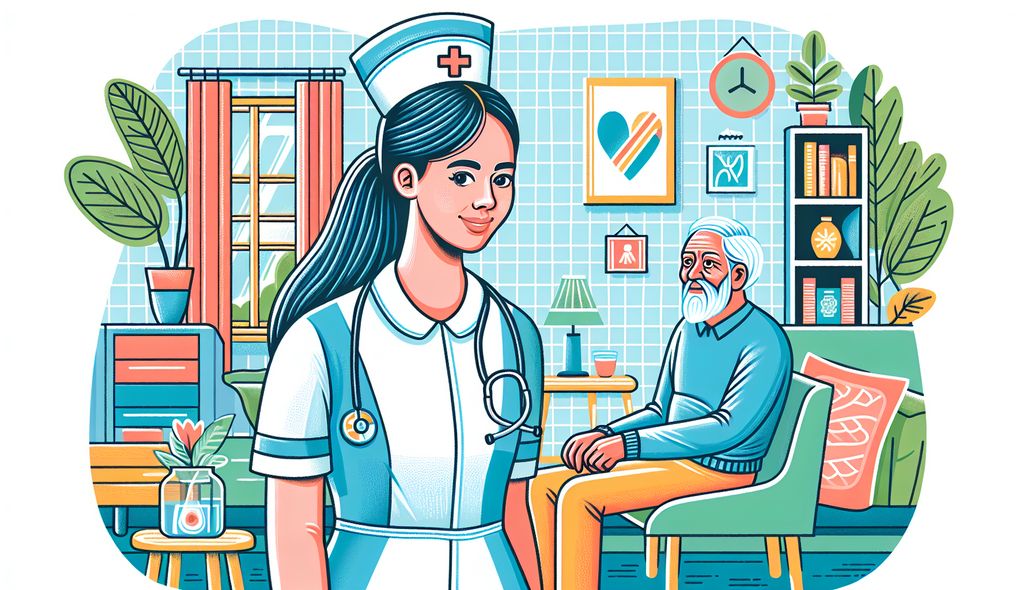How do you handle difficult or resistant patients in your care?
JUNIOR LEVEL

Sample answer to the question:
When dealing with difficult or resistant patients in my care, I always prioritize empathy and understanding. I take the time to listen to their concerns and validate their feelings. I try to establish a rapport with them by building trust and demonstrating that I genuinely care about their well-being. I also use effective communication skills to explain the reasons behind my decisions and recommendations. If necessary, I involve the patient's family members or support system to help address any barriers to their care. Overall, my approach is to remain calm, patient, and open-minded while working towards finding a solution that meets the patient's needs.
Here is a more solid answer:
When faced with difficult or resistant patients, I draw upon my strong communication skills to create a safe and non-judgmental environment. I actively listen to their concerns, allowing them to express their frustrations and fears. By empathizing with their emotions, I validate their experiences and foster a sense of trust. In challenging situations, I remain calm and composed, ensuring that I respond with respect and dignity. I leverage my problem-solving abilities to identify the underlying issues and explore possible solutions together with the patient. Collaboration is vital, so I involve the patient's family, caregivers, or other healthcare professionals to provide comprehensive support. Ultimately, my goal is to find a common ground that respects the patient's autonomy while ensuring their well-being.
Why is this a more solid answer?
The solid answer expands on the basic answer by providing specific examples of how the candidate handles difficult or resistant patients. It demonstrates strong communication skills, empathy, problem-solving abilities, and collaboration. However, it could still benefit from more concrete examples and a discussion of how the candidate ensures patient satisfaction and positive outcomes in such situations.
An example of a exceptional answer:
When encountering difficult or resistant patients, I approach the situation with a blend of compassion and assertiveness. I start by actively listening to their concerns and validating their emotions to establish trust. To address specific challenges, I draw on my problem-solving skills to identify the root causes of their resistance and develop personalized care plans that align with their goals. I also utilize my strong communication skills to clearly explain the implications of their choices and the potential benefits of alternative approaches. If necessary, I collaborate with a multidisciplinary team to ensure holistic care. Additionally, I proactively seek feedback from patients to continuously improve the quality of care provided. By consistently demonstrating empathy, assertiveness, and a commitment to patient-centered care, I aim to empower difficult patients to become active participants in their own well-being.
Why is this an exceptional answer?
The exceptional answer goes above and beyond by providing a comprehensive approach to handling difficult or resistant patients. It showcases the candidate's ability to balance empathy and assertiveness, as well as their strong problem-solving and communication skills. It also highlights their dedication to continuous improvement and patient empowerment. The answer could be further enhanced by including specific examples of past experiences and their outcomes.
How to prepare for this question:
- Familiarize yourself with common patient concerns and objections and brainstorm appropriate responses.
- Reflect on past experiences dealing with difficult patients and identify lessons learned and areas for improvement.
- Practice active listening and empathy in your everyday interactions to strengthen these skills.
- Review effective communication strategies and techniques, such as motivational interviewing and nonviolent communication.
- Role-play scenarios with a friend or colleague to simulate challenging patient interactions and practice your responses.
What are interviewers evaluating with this question?
- Communication skills
- Empathy
- Problem-solving
- Collaboration

